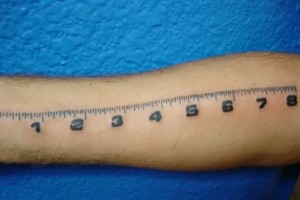 At my place of business, we use a level system of 1-4 to describe the depth and intensity of a given therapist’s typical massage style. Recently, I interviewed a job candidate who had never heard of this system and wanted me to explain it. “Well,” I said, musing, “Think of Level 1 like someone sweeping you with a feather duster and Level 4 more like a run-in with Helga the Prison Mistress. And Levels 2 and 3 as steps in between.” Overly simplistic, yes; especially since once you’ve been working as a massage therapist for a long while, you realize that there are levels within levels. For example, no Level 2 therapist is ever the same so no Level 2 massage is ever really just 2: it can be 2.3 or 2.5 or 2.8.
At my place of business, we use a level system of 1-4 to describe the depth and intensity of a given therapist’s typical massage style. Recently, I interviewed a job candidate who had never heard of this system and wanted me to explain it. “Well,” I said, musing, “Think of Level 1 like someone sweeping you with a feather duster and Level 4 more like a run-in with Helga the Prison Mistress. And Levels 2 and 3 as steps in between.” Overly simplistic, yes; especially since once you’ve been working as a massage therapist for a long while, you realize that there are levels within levels. For example, no Level 2 therapist is ever the same so no Level 2 massage is ever really just 2: it can be 2.3 or 2.5 or 2.8.
However, even though the level system may not always be spot-on accurate, it does serve as some sort of guideline. We keep a coffee-table book for clients that contains each therapist’s profile, and each profile clearly indicates what level each therapist works at. In addition, our front staff makes an honest effort to match incoming clients to particular therapists whenever there are special depth requests (and that means light or deep). I believe that this is a good thing: for example, no one who requests a really deep tissue massage wants to end up with a Level 1 therapist.
Not all businesses use the level system, though, or even go to the trouble to match clients with appropriate therapists. I’ve worked at places where clients requesting serious deep tissue were paired with Level 1 and 2 therapists, simply because those therapists were the only ones available at that time and the business wanted to book the slot at any cost. In my opinion, the cost could be losing a client: if you specifically ask for something, and you pay for it, you rather expect to get it.
Some people would try to justify the above by arguing that defintions of deep tissue differ greatly. Boy, do they (read a bit of sarcasm here). Just about every therapist I’ve ever known listed “deep tissue massage” on his or her resume, whether or not he or she actually practiced it. And who gets to decide what is deep? The person with the most common sense, maybe? There are levels of deep, but we all know the difference between deep and light. We just do. Light is not deep no matter how much you wish it was. And I have met many an unhappy client out there who has ended up on a table either wishing for deeper or praying for lighter.
Maybe some sort of universal level system in massage wouldn’t be so bad. It seems to me that using such systems to match clients with therapists would make for happier clients and more ethical business practice across the board.





